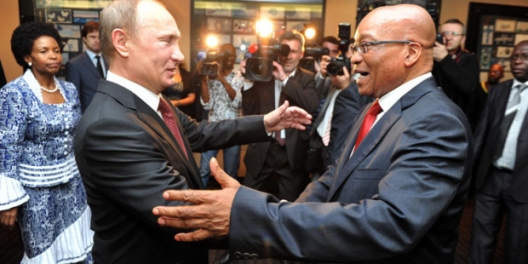 One year after the disputed referendum to join Ukraine’s Crimean peninsula to Russia, the Kremlin is increasingly finding in Africa a welcome break from what has otherwise been its continued international diplomatic and economic isolation as a result of its aggression against its Eastern European neighbor.
One year after the disputed referendum to join Ukraine’s Crimean peninsula to Russia, the Kremlin is increasingly finding in Africa a welcome break from what has otherwise been its continued international diplomatic and economic isolation as a result of its aggression against its Eastern European neighbor.
In an Atlantic Council essay last year, drawing on earlier studies, I noted that “Ukraine, Georgia and the Middle East are not the only places Vladimir Putin’s Russia has put a muscular foreign policy on display” and that “quietly, but with equal determination, President Putin has directed a robust strategic push into a region farther from Russia’s borders—Africa,” warning that “while the web of strategic access and other ties that the Russians have been reconstituting and expanding across the continent does not necessarily presage a return to the Cold War era’s often-tragic zero-sum competition, other international actors heavily invested there no longer can ignore Moscow’s resurgent interest.”
Recent developments have validated these concerns as the siloviki around Putin have not only returned to the former Soviet Union’s theaters of operations in Africa, but done so in force across a range of sectors, the connections between which are, more often than not, far from transparent.
Image: Russia is increasingly welcome in Africa (photo: Government of South Africa)
